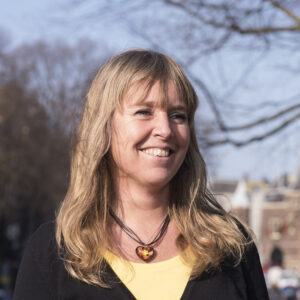Event Conference
Enhancing the Right to Science and the Planetary Crisis: A roundtable on emerging trends and issues | 2023 Social Forum

02 Nov 2023
14:00–15:00
Venue: Palais des Nations, Room XXII & Online
Organization: University of Geneva, Swiss Commission for UNESCO, United Nations Educational, Scientific and Cultural Organization, Geneva Environment Network
This side event to the 2023 Social Forum, taking place on 2 and 3 November 2023 in Palais des Nations, highlighted how the right to science has the potential of improving the enjoyment of many other rights and providing essential building blocks and responses to key sustainability challenges of our times — including the triple planetary crisis of climate change, biodiversity loss, and pollution. This event was organized by the University of Geneva, the Swiss Commission for UNESCO, UNESCO, and the Geneva Environment Network.

About this Event
While science is indispensable for addressing current and future societal challenges, its role is more debated than ever in polarized, politicized and often partial terms. Scientists often find themselves under attack and their institutional foundations and spaces eroding.
Are science concerns adequately identified and articulated in human rights processes and the triple planetary crisis? The right to science encompasses different complementary dimensions from access to scientific knowledge and the applications of scientific progress to protection against harm deriving from scientific and technological advancements and protection of the autonomy and freedom of scientific researchers. Clearly, enhancing the right to science through its different components has the potential of improving the enjoyment of many other rights and providing essential building blocks and responses to key sustainability challenges of our times — from climate change and biodiversity loss to global health crises and pandemics. The global COVID-19 pandemic, for example, revealed deep-running challenges in vaccine access but also in the application of intellectual property regimes exacerbating inequalities across and within countries.
In that sense, defending the right to science is also critical in accelerating progress towards achieving the Sustainable Development Goals (SDGs), which are underpinned by scientific knowledge derived from the natural and social sciences. However, taking full advantage of this right will require a far more comprehensive approach to its application.
This side event presents research building on the momentum created by recent normative developments such as the UNESCO 2017 Recommendation on Science and Scientific Researchers. It also draws on an increasing interest in recent years including the outcomes of recent experts’ conversations such as the Geneva Human Rights Dialogue on the Right to Science. This roundtable offers a critical opportunity to reflect upon emerging trends and issues including the launch of a Special Issue on “Enhancing the Right to Science” and recent developments in relation to the triple planetary crisis.
Speakers

Alexandra XANTHAKI
UN Special Rapporteur in the field of cultural rights

Marcos ORELLANA
UN Special Rapporteur on toxics and human rights

Yvonne DONDERS
Professor, University of Amsterdam

Stephan KUSTER
Head, Institutional Relations, Frontiers

Kostas TARARAS
Programme Specialist, UNESCO

Peter Bille LARSEN
Senior Lecturer, University of Geneva | Swiss Commission for UNESCO | Moderator
Summary
Moderator – Peter Bille Larsen, Swiss Commission for UNESCO
After years of neglect, the field of the right of science is now exploding in terms of relevance and ambition. The right to science is fundamental to react to COVID-19 pandemic and the triple planetary crisis, which requires substantive work to develop right to science as building block. A tendency exists to narrow down the right to science to just a few elements. In reality, however, it covers a bundle of different rights, dimensions and issues. Larsen further notes the systematic underreporting and lack of common narrative on the right to science in both HR processes and UNESCO mechanisms.
Kostas Tararas, Programme Specialist at UNESCO
Tararas makes three points in his intervention. First, a common knowledge and acceptance exists among all key players that the world needs more science. Not just any science, however; we need science ecosystems that are shaped by human rights, equality, justice and inclusion. Such ecosystems cannot be driven exclusively by growth and productivity considerations. Second, the importance of the right to science as powerful leverage to help produce the change referred to. We are better placed now to use right to science than we were a couple of years ago. Several standard-setting instruments that focus on the right to science and a human rights-based approach to science and scientific researchers were adopted. In addition, there seems to be a better political climate regarding science and human rights: with a statement in March at Human Rights Council by 70 MS about the importance of academic freedom. Third, in order to leverage right to science more effectively, we need to connect the dots and address fragmentation.
Alexandra Xanthaki, UN Special Rapporteur in the Field of Cultural Rights
Science is not a driver for the respect of other human rights. Science is a human right in itself. For now, there has been little discussion and dialogue about what the right to science entails. It is good that UNESCO – as a strong ally – stimulates and facilitates this dialogue. Right to science should also be included by human rights monitoring bodies. Only then a consistent message will be crafted that can be followed by Member States. We need to resist the wish of states to disallow the role of civil society in discussions about the fulfilment of the right to science. The lack of participation at all levels is worrisome: everyone has the right to participate in science. This right is not implemented. Policies get adopted in the name of science but a very elitist, exclusive and restrictive understanding of science – indigenous voices, citizen science and other individuals and collectivities are left out.
Yvonne Donders, Professor at University of Amsterdam
The position of women in the UDHR is rather weak: women do not enjoy many of these rights in a similar way as men. We see laws and policies that prohibit women from accessing and participating in science, such as the Taliban regime in Afghanistan. Other laws may seem neutral but, in practice, differentiate and create disadvantages for women. The right to science covers access and contribution to and participation in science and the enjoyment of its benefits as well as protection against harmful science. The ICESCR comment on this right includes various measures to tackle these inequalities, e.g. “States should immediately eliminate barriers that affect girls and women access to science careers.” Temporary special measures such as quotas are acceptable to decrease inequalities. RSSR also addresses these issues: States should, according to RSSR, actively encourage women to consider careers in science. Performance evaluations should be gender sensitive, to account for family care-related interruptions of work.
Marcos Orellana, UN Special Rapporteur on Toxics and Human Rights
The right to science is a fundamental human right, protected in multiple international instruments. For the products of science to benefit society, there should be a process of translation: knowledge should be applied in the design of actual policies, so that society is protected against toxics. The UN Environment Assembly has kicked off negotiations to set up a platform on science policy interface on chemicals, waste and pollution.
Stephan Kuster, Head of Institutional Relations of Frontiers
If we want to address issues like the COVID-19 pandemic and climate change, we need the research that offers us tools to be openly accessible. Kuster’s organisation publishes journal articles and policy opinion editorials on the right to science.
Video
Live on YouTube.
Live on Facebook
